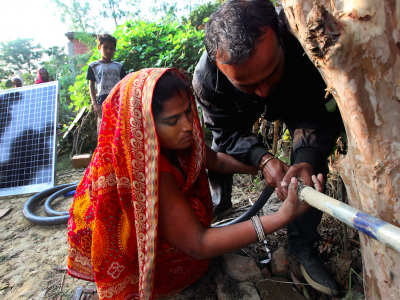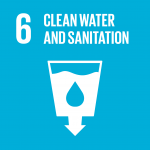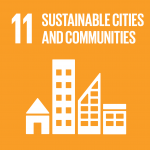Ecosystem-based Adaptation Guidelines with example from Nepal’s National Adaptation Plan

24 June 2020 – Bangkok, Thailand – For the 6th Ecosystem-based Adaptation (EbA) Knowledge Day, the joint UNDP- UNEP National Adaptation Plan Global Support Programme, funded by the Global Environment Facility organized a session to announce the “Introduction and Consultation on the EbA Guidelines (forthcoming) for the National Adaptation Plan (NAP) process.”
Since the term EbA was adopted by the Convention on Biological Diversity (CBD) in 2010, UNEP has worked with decision makers and practitioners to understand how EbA can best contribute to national adaptation efforts. The UNEP defines ecosystem-based adaptation (EbA) as an approach that uses ecosystem services as part of a holistic adaptation strategy, where win-win outcomes are sought and vulnerable communities are protected from extreme weather events.
National Adaptation Plans (NAPs) is a strategic country-driven process that enables countries to identify and address their medium-and long-term priorities for adapting to climate change in their plans and policies. It's a process led by national governments and can involve multiple sectors and ministry lines. The significance of harmonizing ecosystem-based adaptation into NAPs helps countries conduct planning on best practices for adaptation. NAPs that are based on the concept of EbA have additional benefits through the use of biodiversity and ecosystem services while helping people adapt to the adverse effects of climate change.
At the 6th Ecosystem-based Adaptation Knowledge Day, Mr Gyanendra Karki of UNEP’s Nepal NAP Project highlighted the philosophy and guiding principles of integrating EbA into Nepal’s National Adaptation Plan. To further target the co-benefits of mitigation and adaptation, Nepal adopted the 'Ecosystem first' - 'people-first' and 'development-first' discourse that is supplemented by adaptation actions. Having a balance between ecosystem-based and community-based adaptation approaches allows the country to prioritize ecosystem restoration.
Nepal tapped into adaptation services through the conservation, management and utilization of natural resources, like their forests, biodiversity, water resources and mountains through green job creation, fostering agriculture, and promoting nature-based tourism. Incorporating EbA into Nepal’s NAPs links to existing processes, such as the Sendai Framework, Disaster Risk Reduction (DRR) and the 2030 Sustainable Development Goals (SDG1, SDG7, SDG11, SDG13, SDG14 and SDG15) and Nepal’s National Climate Change Policy 2019.
Nepal’s National Adaptation Plan process ensures a participatory and inclusive process, where no one is left behind and all sectors are consulted. In on-going discussions, Nepal is looking into how and where adaptation services (and nature-based solutions) can be generated. The country aims to build more resilient systems that are currently at risk and to see how services, like transporting electricity from reservoirs to households to better serve the most vulnerable communities.
The NAP Global Support Programme will be developing Ecosystem-based Adaptation Guidelines for NAPs. Consultations for the guidelines will begin in mid-June where a literature review will be conducted and feedback will be collected from dialogues held with stakeholders. In mid-October, the feedback received will be consolidated into a Guidelines draft, and by December 2020, additional review will be compiled for the final draft of the EbA Guidelines for NAPs.
The presentation by the NAP-GSP opened with an introduction on the activities achieved by the Programme over the past six years by Rohini Kohli, the Lead Technical Specialist of the UNDP-GEF/National Adaptation Plan portfolio. Lis Mullin Bernhardt, the Programme Officer and Climate Change Adaptation Coordinator of the Global Adaptation Network of UNEP and Mr Gyanendra Karki of UNEP’s Nepal NAP Project delivered the presentation on EbA in Nepal’s NAPs.
To contribute to the consultation for the Ecosystem-based Adaptation Guidelines for NAPs, interested stakeholders can contact Mr. Soumya Bhattacharya from UNEP/NAP GSP (Soumya.Bhattacharya@un.org).
***
The National Adaptation Plan Global Support Programme (NAP GSP) assists least developed and developing countries to identify technical, institutional and financial needs to integrate climate change adaptation into medium and long-term national planning and financing. NAP GSP supports countries in the process to formulate and implement National Adaptation Plans (NAPs) and to date, has trained and capacitated 253 technicians/experts from 40 Least Development Countries (LDCs), including 38% of female participants. NAP GSP has been operational for six years and has worked with 59 countries across 4 regions.




